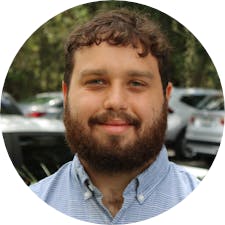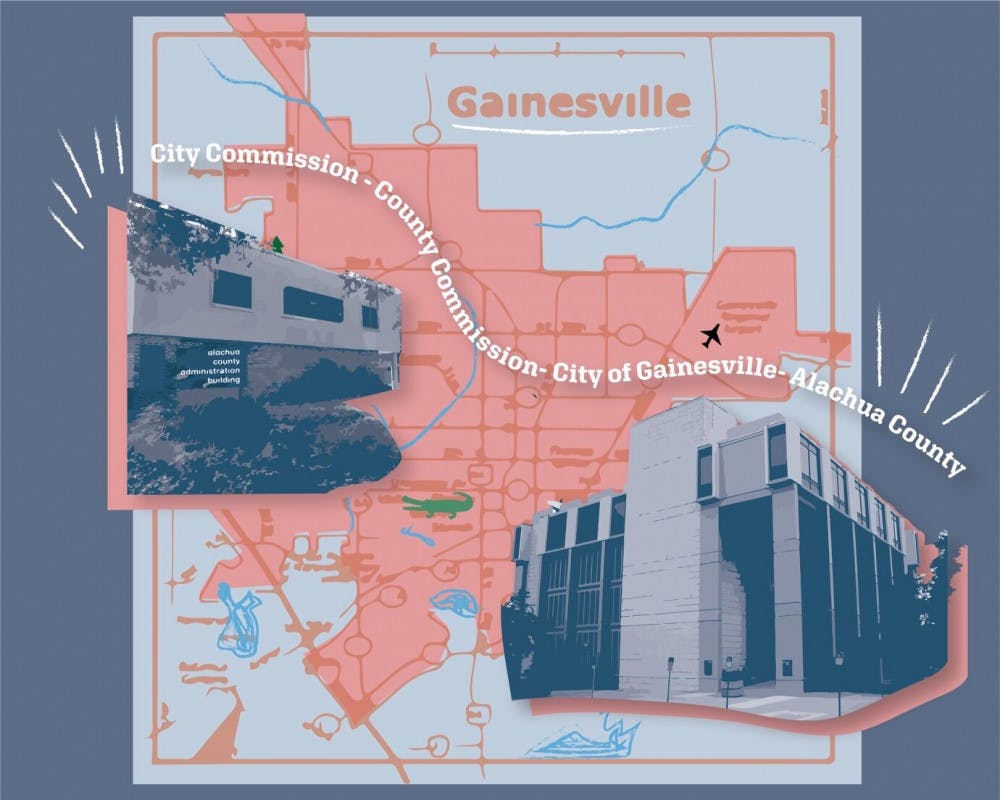After successfully being passed by the Gainesville City Commission, the removal of single-family zoning has brought constant dissent. Now, the city is facing two simultaneous lawsuits for the ordinance.
The Florida Department of Economic Opportunity filed a suit against the city Nov. 28, looking to repeal the ordinance that would allow multi-unit apartment complexes to be built in traditionally single-unit housing neighborhoods. The suit comes just weeks after filings by local residents.
The state’s complaints center around two major arguments: state control and the ordinance’s inconsistency with other city laws.
In the DEO’s petition, the state argues affordable housing issues fall under state authority due to programs like the Florida Housing Finance Corporation, which is directly tasked with creating and sustaining affordable housing options.“The FHFC administers many programs that seek to increase access to affordable housing, both single-family and multi-family,” the petition reads.
If Judge Edward Gary Early agrees, this argument could allow for more state involvement in local affordable housing issues.
Those in favor of the ordinance believe additional complexes will create more affordable housing opportunities across the city.
Mayor Lauren Poe, who supported the ordinance, said the decision should remain within the city.
“I think the state is overstepping its authority here,” Poe said. “There’s certainly no benefit to making housing more difficult to build.”
Other arguments against single-family zoning elimination include the change being inconsistent with the city’s Exclusionary Zoning and Inclusionary Zoning study. These sentiments are shared both by the DEO and by Gainesville residents Faye Williams and Margaret Carr, who filed their own petition Nov. 8.
The two are part of Gainesville Neighborhood Voices, a nonprofit organization that has routinely challenged the decision from its onset. They argue the city’s research on how increased density in these neighborhoods will affect city services and infrastructure is outdated.
Changes to city planning “must be clearly based on appropriate data,” according to Florida statutes.
The change also didn’t address affordable housing within the city, Carr said.
“I think it’ll be market-rate housing that our students can afford and that many of our less well-to-do permanent residents cannot,” she said.
Students already make up 28% of renters, according to federal housing market analysis studies.
With inclusionary zoning — which requires developers to make a portion of their units affordable — not in effect in Gainesville, Carr said new housing would continue to be expensive.
By legally challenging single-family zoning elimination, land developers cannot make use of the ordinance change until after the issue is settled.
Casey Fitzgerald, president of Gainesville Neighborhood Voices, said one goal of the organization’s suit was to prevent any apartment development in neighborhoods until January, when the new city commission arrives.
“If we did not file the lawsuit, they [the changes] would go into effect, and at that point, developers could start applying for activity,” Fitzgerald said.
Currently, exclusionary zoning elimination is supported by City Commissioners David Arreola, Adrian Hayes-Santos, Reina Saco and Poe. Three of the four commissioners term out Jan. 5, and only one incoming commissioner, Casey Willits, hasn’t spoken out against the ordinance.
Alachua County joined GNV’s lawsuit Nov. 17. Both the County Commission and the DEO sent letters prior to their litigation condemning the ordinance.
District 4 County Commissioner Ken Cornell said the county decided to get involved after seeing the overwhelming public backlash.
“Even when you have a good idea,” Cornell said, “If nine out of ten of your citizens that you work for disagree with that idea, you have to pause,”
It’s unclear as of Wednesday afternoon whether the two lawsuits will consolidate into one.
Both suits will have a status conference, where attorneys from both sides meet before trial, Dec. 6. The meeting comes days after commissioners Arreola, Hayes-Santos and Poe leave for Israel until Dec. 11.
GNV’s suit will have a formal hearing from Dec. 13 through 15, though the state’s suit is yet to have a hearing date scheduled.
Contact Aidan at abush@alligator.org. Follow him on Twitter @aidandisto.

Aidan Bush is a fourth-year journalism major and the Summer 2024 Editor-in-Chief of The Alligator. In his free time, he likes to listen to music and go kayaking.






